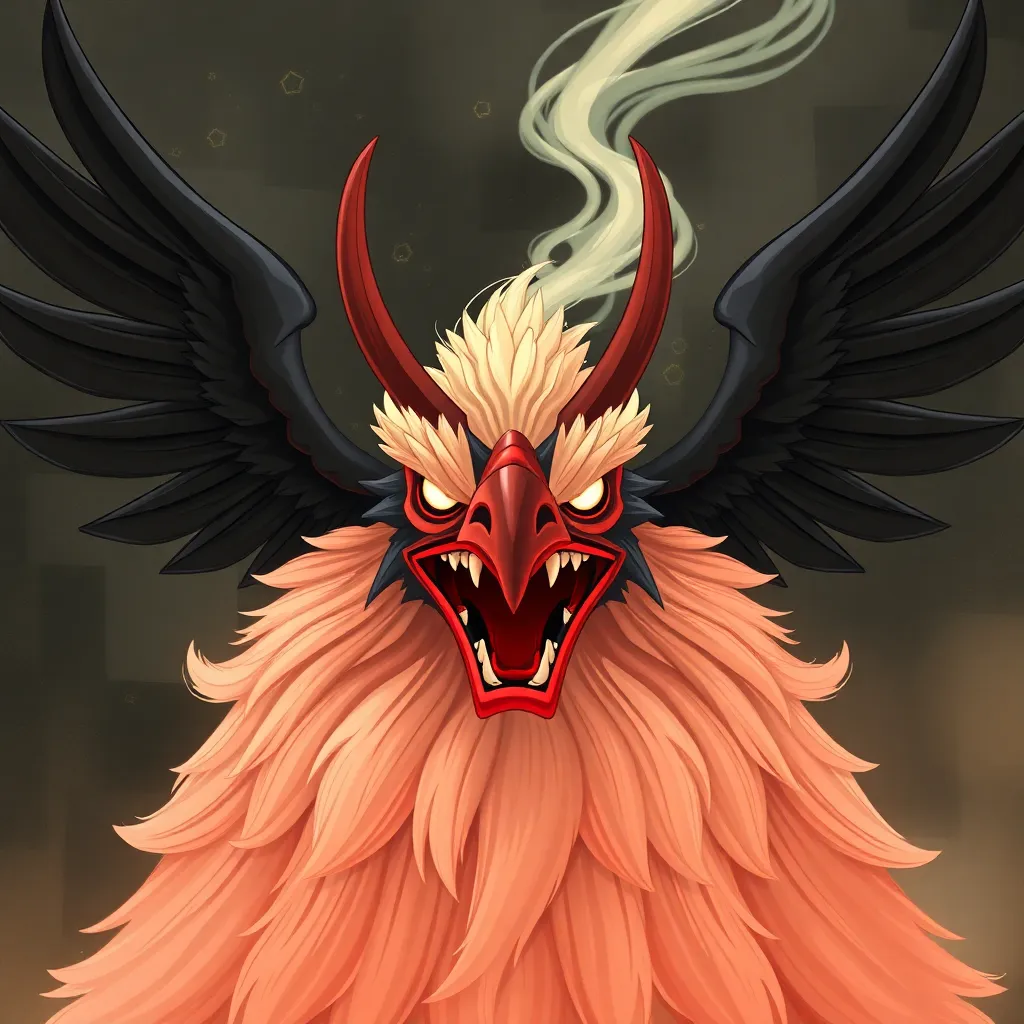The Tengu’s Nose: Symbolism and Interpretations in Japanese Mythology
I. Introduction
Japanese mythology is rich with creatures that embody various aspects of nature, spirituality, and human nature. Among these, the Tengu stands out as a complex figure, often depicted as a bird-like humanoid with a prominent nose. The Tengu’s nose holds significant cultural and symbolic meaning that reflects broader themes within Japanese folklore.
The purpose of this article is to delve into the various interpretations of the Tengu’s nose, exploring its origins, physical characteristics, symbolism, and its role in art and cultural practices. By examining these facets, we can gain a deeper understanding of the Tengu and its place in Japanese mythology.
II. Origins of the Tengu in Japanese Folklore
The Tengu has a rich historical background that dates back to ancient Japan. Initially regarded as protective deities of the mountains, Tengu were thought to be the spirits of the deceased who resided in remote areas. Over time, their portrayal evolved from benevolent guardians to mischievous tricksters.
The evolution of the Tengu character reflects the changing perceptions of nature and spirituality in Japan. Initially revered, they became symbols of arrogance and pride, often associated with the samurai class and their struggles. The Tengu’s strong connection with mountains and nature emphasizes its role as a guardian of the wilderness, highlighting the Japanese reverence for natural landscapes.
III. Physical Characteristics of Tengu
Tengu are often depicted with distinct physical features that set them apart from other mythological creatures. Their most notable characteristic is their long, prominent nose, which varies in size and shape depending on the specific type of Tengu.
- Karasu Tengu: Typically depicted with a beak-like nose reminiscent of a crow.
- Yamabushi Tengu: Shown with a more human-like face but still possessing an elongated nose.
- Other Variations: Some depictions include Tengu with exaggerated features that emphasize their mystical nature.
When compared to other mythological creatures, such as the kappa or the kitsune, the Tengu’s unique nose serves as a distinguishing feature that enhances its identity within the folklore. The nose is not merely a physical attribute but a symbol of the Tengu’s complex personality and traits.
IV. Symbolism of the Tengu’s Nose
The Tengu’s nose carries rich symbolism within Japanese culture. One of the primary interpretations is its representation of pride and arrogance. The exaggerated size of the nose can be seen as a reflection of the Tengu’s inflated ego, often leading to their downfall.
Moreover, the nose is associated with perception and insight. In many cultures, the nose is linked to the ability to discern truth and lies. The Tengu, as a creature of both the earthly and spiritual realms, embodies this duality, suggesting a deeper understanding of the world around them.
Additionally, the Tengu’s nose is connected to its supernatural abilities. In folklore, Tengu are said to possess remarkable powers, including flight and shape-shifting. The prominence of their nose may symbolize their heightened spiritual awareness and connection to the supernatural.
V. The Tengu in Art and Literature
The Tengu has been a popular subject in traditional Japanese art, often portrayed in woodblock prints, paintings, and sculptures. Artists have depicted Tengu in various forms, emphasizing their distinctive features, especially the nose, to convey their character traits.
In contemporary literature and popular culture, Tengu continue to capture the imagination of writers and creators. They appear in various forms, from whimsical children’s books to serious literary works that explore deeper themes of identity and nature.
- Key Works:
- The Tale of the Heike: Features Tengu as significant figures in the stories of warriors.
- InuYasha: A popular anime that includes Tengu as characters with various powers.
VI. The Tengu’s Role in Cultural Practices
Tengu have been integrated into various cultural practices in Japan, particularly in Shinto rituals and festivals. They are often honored in ceremonies that celebrate the connection between humans and nature.
Additionally, the influence of Tengu extends to martial arts, where their traits of agility and cunning are admired. Tengu are often seen as embodiments of discipline and skill, inspiring martial artists to emulate their qualities.
In society, Tengu serve dual roles as protectors and tricksters. They are seen as guardians of the mountains, yet their mischievous nature can lead to trouble for those who disrespect nature or act arrogantly.
VII. Modern Interpretations and Influence
In modern media, the Tengu has found a new life in various forms of entertainment, including video games, anime, and movies. They are often reimagined in ways that reflect contemporary values and aesthetics while maintaining their mythological roots.
The Tengu’s nose has also become a recognizable trope in popular culture, often used humorously to signify pride or arrogance. Such portrayals shift the symbolism of the Tengu from a serious figure of folklore to a more playful representation.
As societal perceptions change, the Tengu’s character continues to evolve, reflecting new interpretations of its significance in the modern world.
VIII. Conclusion
In conclusion, the Tengu remains a significant figure in Japanese mythology, embodying themes of nature, pride, and spiritual insight. The Tengu’s nose serves as a powerful symbol that encapsulates these themes, reflecting the complexities of human nature and the natural world.
The enduring legacy of the Tengu’s nose is evident in its continued relevance in contemporary culture. As we explore the Tengu in various contexts, we recognize the importance of these mythological figures in understanding our own identities and relationships with nature.
Ultimately, the Tengu serves as a reminder of the intricate connection between humanity and the mystical, urging us to respect the natural world while acknowledging the complexities of our own nature.


